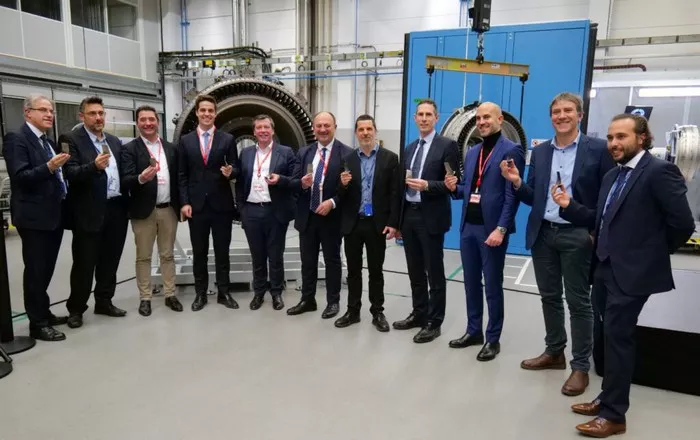In a significant step toward advancing aerospace technology and sustainability, Safran has officially opened its BeCOVER compressor test centre in Herstal, Liège, Belgium. The inauguration ceremony was attended by Adrien Dolimont, Minister-President of Wallonia, and Olivier Andriès, CEO of Safran. The state-of-the-art facility spans 3,000 square meters and is designed to test cutting-edge compressors for both civil and military aircraft engines, playing a key role in the aviation sector’s efforts to meet environmental goals.
A Hub for Environmental Innovation in Aviation
BeCOVER is set to become a leading facility in Europe, equipped with unique aerodynamics-testing capabilities. Notably, it features a closed air loop that can simulate altitude conditions, providing an advanced platform for testing new technologies aimed at reducing emissions and improving energy efficiency. The test centre’s primary mission is to validate innovative solutions that can address the sector’s most pressing environmental challenges.
Developed by Safran Test Cells, a division of Safran Aero Boosters, the facility integrates cutting-edge technologies designed to optimize energy and water usage. Its semi-buried architectural design helps to minimize noise pollution, ensuring a seamless integration with the surrounding environment.
Key Milestone: Prototype Testing for the Open Fan Engine
A major highlight for BeCOVER will come in December, when it hosts testing for a prototype low-pressure rapid compressor developed by Safran Aero Boosters for the Open Fan engine, part of the CFM RISE (Revolutionary Innovation for Sustainable Engines) programme. The Open Fan engine aims to reduce aircraft fuel consumption and CO₂ emissions by 20%, with potential reductions of up to 80% when using sustainable fuels. This innovative engine design is expected to be a key component of next-generation single-aisle aircraft slated for deployment by 2035, significantly reducing aviation’s environmental footprint.
The compressor prototype, developed in collaboration with the Partenariat d’Innovation Technologique Wallon (P.I.T.), underscores Wallonia’s commitment to fostering technological innovation and attracting talent. The high-speed compressor is designed to reduce engine weight and raw material usage by minimizing the size of the low-pressure spool. Equipped with 1,200 sensors, the prototype will undergo an intensive six-month testing campaign focused on optimizing aerodynamic efficiency.
A Collaborative Platform for Aerospace and Beyond
While BeCOVER will serve as a key site for Safran’s projects, the centre is also open to the broader aerospace industry and other sectors, including energy. Its cutting-edge research capabilities provide a platform for experimental studies in turbomachinery aerodynamics, making it a valuable resource for academic institutions and universities in Belgium. By promoting collaboration and knowledge-sharing, BeCOVER aims to strengthen the connection between scientific research and industrial applications, supporting skill development and innovation across multiple sectors.
In summary, BeCOVER represents a critical step forward in the aviation industry’s quest for sustainability and technological advancement. Through its advanced testing capabilities and focus on innovation, it is set to play a central role in shaping the future of aerospace propulsion systems.
Related topics:

